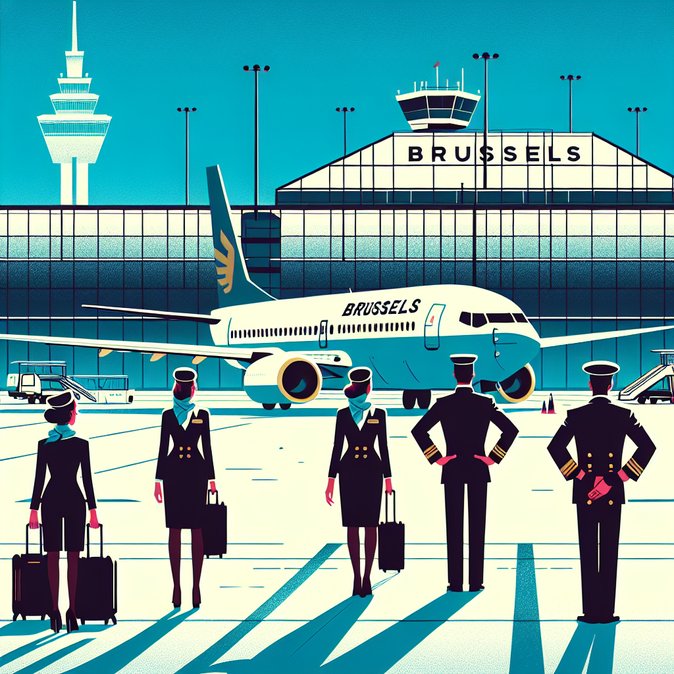
Unions representing Brussels Airlines cabin staff (BBTK/SETCa and ACV Puls/CNE) filed an official 48-hour strike notice on 28 October after management summarily dismissed three flight attendants who refused to operate a Brussels–Accra rotation, citing fears of a possible pest infestation on board.
The carrier—part of Lufthansa Group—insists an external inspection found no vermin and accuses the crew of breaching safety procedures. Unions counter that the sackings send a “dangerous signal” that health concerns will be punished. They demand immediate reinstatement and negotiations on clearer escalation protocols when crew identify hygiene or safety risks.
If talks fail, industrial action could start as early as 4 November, affecting up to 300 daily flights across the Brussels Airlines European network and its key African routes. Lufthansa Group contingency plans include wet-leasing capacity from CityJet and shifting passengers to Eurowings and Austrian Airlines, but significant schedule thinning is expected.
The dispute comes as the airline negotiates a new collective labour agreement and battles rising unit costs due to Belgium’s automatic wage-indexation. For corporate travel managers, the looming strike coincides with the Christmas booking window; proactive re-protection on alternative Star Alliance carriers is advisable. Travellers should monitor their booking status and ensure contact details are up to date to receive re-routing offers.
Labour lawyers note that Belgium’s 2023 Minimum Service Act applies only to essential public transport, so there is no obligation for Brussels Airlines to operate a skeleton schedule—highlighting the potential severity of disruption if the stoppage proceeds.
The carrier—part of Lufthansa Group—insists an external inspection found no vermin and accuses the crew of breaching safety procedures. Unions counter that the sackings send a “dangerous signal” that health concerns will be punished. They demand immediate reinstatement and negotiations on clearer escalation protocols when crew identify hygiene or safety risks.
If talks fail, industrial action could start as early as 4 November, affecting up to 300 daily flights across the Brussels Airlines European network and its key African routes. Lufthansa Group contingency plans include wet-leasing capacity from CityJet and shifting passengers to Eurowings and Austrian Airlines, but significant schedule thinning is expected.
The dispute comes as the airline negotiates a new collective labour agreement and battles rising unit costs due to Belgium’s automatic wage-indexation. For corporate travel managers, the looming strike coincides with the Christmas booking window; proactive re-protection on alternative Star Alliance carriers is advisable. Travellers should monitor their booking status and ensure contact details are up to date to receive re-routing offers.
Labour lawyers note that Belgium’s 2023 Minimum Service Act applies only to essential public transport, so there is no obligation for Brussels Airlines to operate a skeleton schedule—highlighting the potential severity of disruption if the stoppage proceeds.






